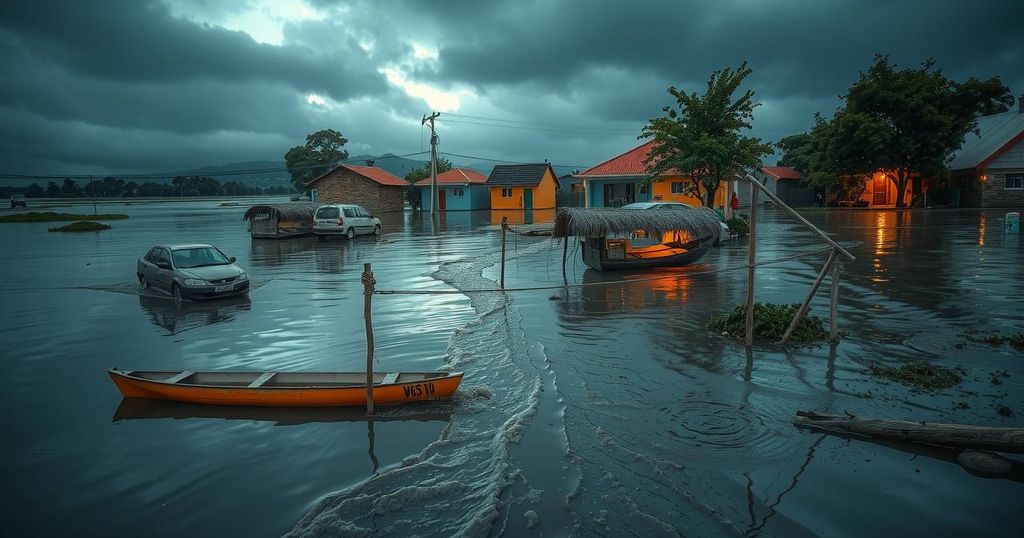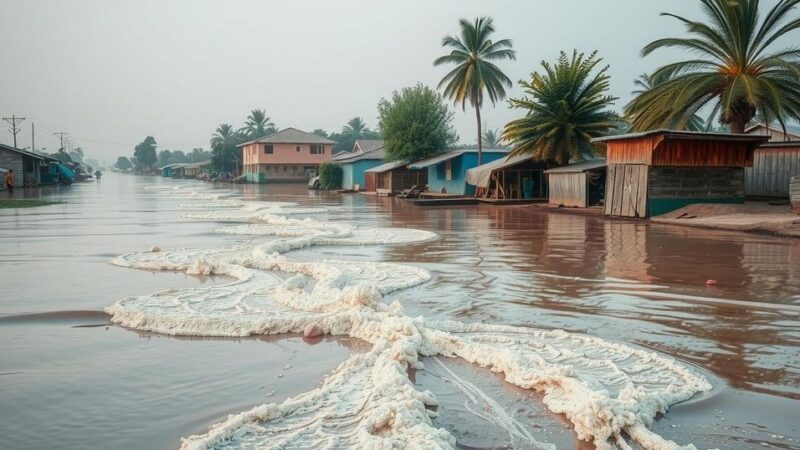A study by the World Weather Attribution initiative identifies human-induced climate change as a key factor in the increased intensity of rainfall and subsequent flooding across the Niger and Lake Chad basins in Africa. The floods have caused over 2,000 deaths and severe displacement, with the researchers calling for enhanced water management, investment in early warning systems, and urgent international financial support to address the climate crisis.
A recent study led by the World Weather Attribution (WWA) initiative has revealed that human-induced climate change has significantly intensified seasonal rainfall across the Niger and Lake Chad basins, resulting in catastrophic flooding throughout several African nations. Particularly, countries such as Chad, Cameroon, Niger, Nigeria, and Sudan have experienced severe disruptions, with over 2,000 fatalities and millions displaced as a consequence of the floods. The analysis conducted by WWA indicates that this year’s rainfall was between 5% to 20% more intense than previous years in these areas, marking a troubling trend towards increased flooding events due to climate change. This seasonal phenomenon has become alarmingly frequent and is anticipated to persist annually if global warming continues unabated. The researchers further noted that these extreme weather occurrences are aggravated by existing socioeconomic challenges, including poverty, rapid urbanization, and inadequate water management. Moreover, the ongoing conflicts in the region exacerbate these crises, displacing millions of individuals who are now residing in precarious conditions. The severe flooding that occurred from June to September has not only affected the already vulnerable population but has also deepened the humanitarian crisis in Sudan, hindering the operational capacity of relief organizations and governmental bodies due to the overwhelming need for assistance. In light of these findings, the WWA has emphasized the urgent necessity for improved preparation for more intense rainfall in the coming years, alongside the enhancement of water management strategies to mitigate vulnerability. The researchers urged a significant investment in early warning systems and infrastructure upgrades, particularly for dams within the affected regions. They also called upon wealthier nations to provide substantial financial support to aid these nations in their climate adaptation efforts, stressing the importance of immediate action during the upcoming United Nations COP29 climate summit in Azerbaijan, particularly in accelerating the transition away from fossil fuels, which are the predominant drivers of climate change.
The impact of climate change has been particularly pronounced in Africa, where seasonal rainfall patterns and extreme weather events have become increasingly erratic. The Niger and Lake Chad basins are critical regions that have faced significant challenges due to such climatic shifts. The combination of climate change, poverty, rapid urban growth, and conflict has led to devastating humanitarian consequences, particularly during extreme weather events like floods. Research groups such as the World Weather Attribution initiative assess the link between climate change and these extreme weather phenomena, providing crucial insights into their increasing frequency and intensity.
In summary, the ramifications of climate change are manifesting in Africa through intensified rainfall and flooding, particularly affecting the Niger and Lake Chad basins. The combination of climatic changes and ongoing regional conflicts exacerbates the already critical humanitarian plight, necessitating urgent action and resource allocation to improve resilience against future disasters. Collaborative efforts at the international level during climate summits could pave the way for meaningful changes in policy and funding, critical in mitigating these flooding impacts.
Original Source: www.africanews.com







